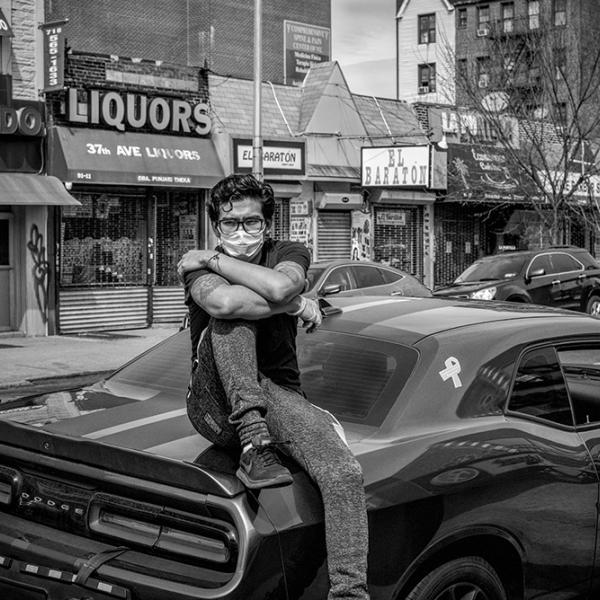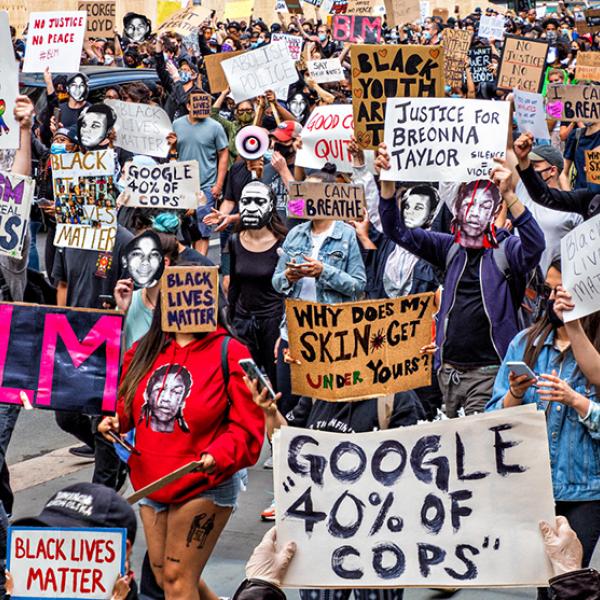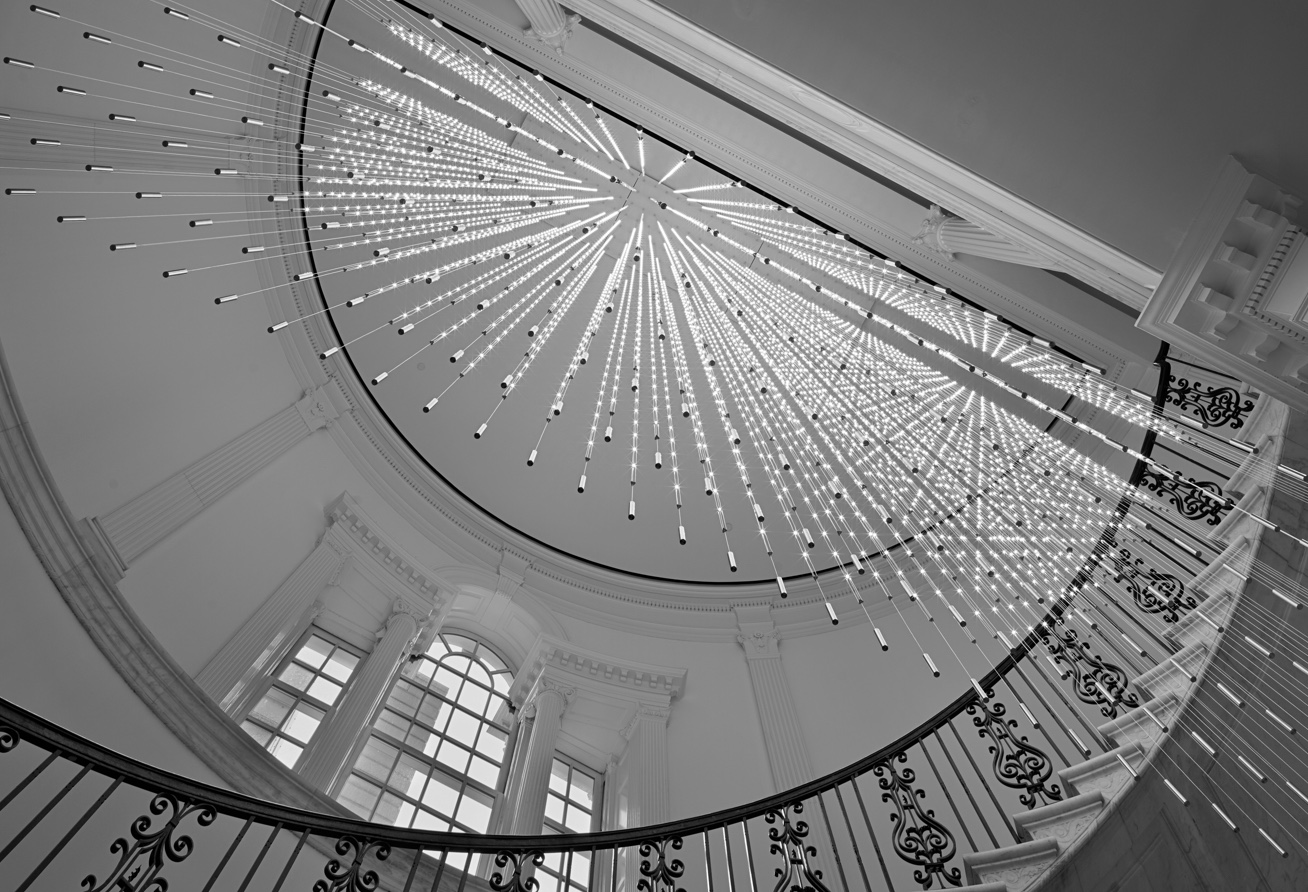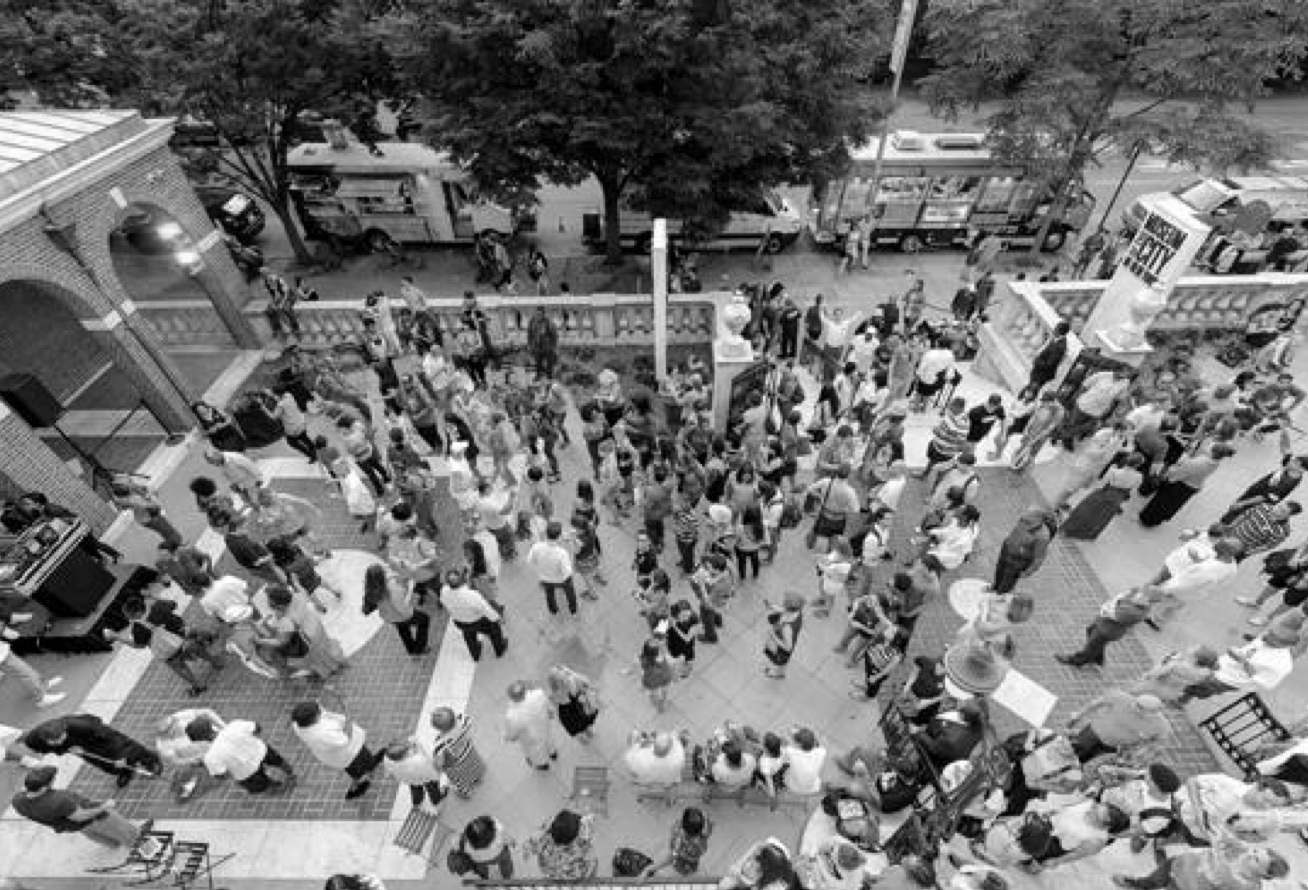Anxiety and Activism: Help the Museum Collect Artifacts to Document the Unprecedented Events of 2020
Tuesday, July 7, 2020 by
Starting in mid-March of 2020, New York City began to close the doors of its businesses, retail stores, restaurants, schools, cultural institutions, and other public-facing entities in response to confirmed cases of COVID-19 in the city. Subway and other public transit ridership dwindled, tourists fled, and major public events were canceled city-wide in anticipation of a global pandemic. As diagnoses and reported deaths from the disease grew daily, those New Yorkers who had the option to stay home largely did so, and maintained distance from those that weren’t part of their immediate household. As the days went by, it became apparent that the impact of the disease was playing out disproportionally among New York’s communities of color.
Meanwhile, on May 25th, George Floyd was killed while being restrained by a police officer in Minneapolis. His unconscionable death, and that of so many before him, reignited protests and activism against racism and systemic bias across the county and beyond. After two months indoors, New York’s residents took to the streets, with a tremendous showing of support for the #BlackLivesMatter movement. While New Yorkers’ experiences and reactions to these two events are separate and unique, reoccurring questions of economic uncertainty and financial austerity, access to healthcare and government assistance, and the question of “who is ‘essential’?” render these events intertwined.
The Museum of the City of New York launched two separate Instagram campaigns using the hashtags #CovidStoriesNYC and the existing #ActivistNY tag to share how residents and visitors are witnessing this unprecedented moment of challenge and change in our city. As part of this campaign, the Museum also initiated an open call for objects which will help us speak to this moment in our city’s collective history for generations to come, while reflecting the diversity of the city across all five boroughs. While these two events are international in scope, the lens should focus specifically on the New York experience – as perceived by individuals, neighborhoods and communities, and the overall city.
Some of the questions we hope these objects can speak to include:
- How are these events changing the city now, and what direction might that take in the long term?
- How are some of the city’s key industries affected: real estate, tourism, retail and hospitality, and performing arts and culture?
- How are different neighborhoods or populations experiencing these events?
- How is the current situation challenging existing ideas about city living?
- How are individuals coping and responding?
- How is this moment affecting New Yorkers thinking about law enforcement and other areas of government and authority?
As staff has reviewed the photographs submitted through the Instagram campaign, we noticed key themes and subjects we hope to document through our collecting efforts:
- Protests
- Signs and handbills, supply kits, protest specific masks
- Police related objects – zip-tie cuffs, any NYPD specific PPE
- An intersectional approach to social issues and advocacy: Pride, health care, voter access
- Public Space, and how it is being used
- Reevaluating monuments
- Park usage
- Curfew and alternative evening activities such as the influx of fireworks
- Social distancing – or not
- Infrastructure for the public
- Decreased subway ridership/alternative transportation
- Health and sanitation (i.e. Compost cancellation, cancellation of alternate side parking)
- Support/ Volunteer/Community groups
- Frontlines
- Businesses pivoting to support the response and advocacy
- First responders – both working to care for New York’s sick, and their support of #BLM
- 7pm daily cheer ritual
- Defining “Essential” businesses and workers
- Adapting
- Homeschooling and home offices
- Obtaining essentials
- Caring for sick family members
- Campaigning and voting
- Leisure and creativity
- Personal expression through protective gear
- Home entertainment
- Beautiful/peaceful moments in the crisis
- Artistic response – music, public art,
- Absence/loss
- Grieving, and inability to come together
- Empty Streets
- Loss of livelihood, closed businesses and cultural organizations
- Canceled landmark events and performances
What else is happening or on the horizon that is unique to this time? What are we missing, that you are seeing?
Please email collections@mcny.org with photographs of the object(s) you would like us to consider for the collection, and a few sentences explaining its significance to the current situation.
Please Note: We are only able to reply to emails regarding materials we are considering for acquisition, and we request that you do not mail any items to the Museum at this time.
In addition to objects, please continue to share photos documenting the current protests or personal experiences during the COVID-19 crisis.








